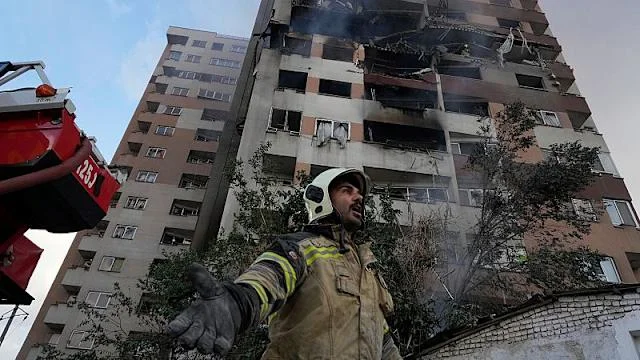Global oil prices surged Today, June 13, 2025, following Israel’s attack on Iran, raising fears of a broader conflict that could disrupt crude oil supplies.
Iran, a major oil producer and China’s largest supplier, faces tightened Western sanctions, potentially constricting global oil flows and driving up prices.
Benchmark U.S. crude rose 6.4% to $72.39 per barrel, while Brent crude, the international standard, climbed 6.6% to $73.94, marking some of the highest levels in months.
Stock Markets Slide Globally
The escalation triggered a global stock market sell-off.
On Wall Street, the Dow Jones Industrial Average fell 1.4% by 10 a.m., though it later pared losses.
The S&P 500 and Nasdaq composite each dropped 0.9%. In Europe, France’s CAC and Germany’s DAX shed just over 1%, while Spain and Italy saw 1.3% declines. London’s FTSE 100 closed 0.4% below its previous record high, reflecting widespread investor concerns about geopolitical risks.Airlines Hit Hard by Airspace ClosuresAirlines were among the hardest hit, as Middle Eastern countries closed airspace to commercial flights, disrupting operations.
Turkish Airlines plummeted 6%, Air France KLM and British Airways’ parent company IAG lost over 4%, while United Airlines and Delta Airlines fell 4.4% and 4%, respectively.
The closures, combined with rising fuel costs due to the oil price spike, intensified pressure on the sector.
Iran’s Role in Global Oil Markets
Iran’s significant oil production makes it a critical player in global markets, with China as its top buyer.
Despite sanctions, any further disruption to Iranian crude could sustain elevated prices, impacting consumers worldwide with higher gasoline and energy costs.
With potentially ranging from $50 to $90 per barrel, though downside risks currently outweigh upside potential.
Economic and Geopolitical Implications
The Israel-Iran conflict, escalating since the Gaza war began in 2023, threatens broader regional instability.
Israel’s strikes on Iranian nuclear and military sites, followed by Iran’s retaliatory missile launches, have heightened fears of supply chain disruptions.
As markets brace for potential Iranian retaliation, the economic fallout—higher fuel costs and stock market volatility—underscores the fragile balance of global trade and security.
Fidelia Chioma Agwuncha: Pioneering Sustainable Innovation in Supply Chain




















